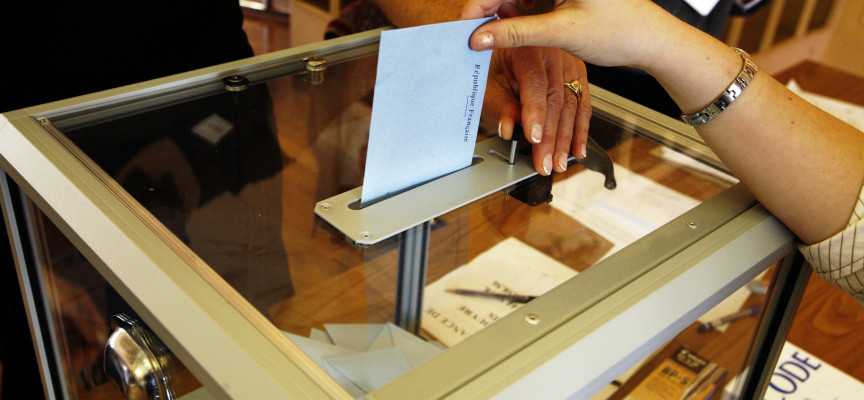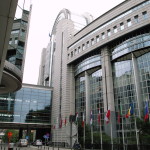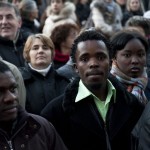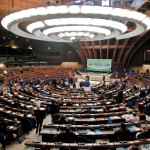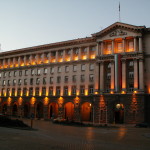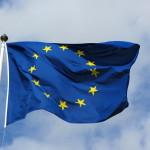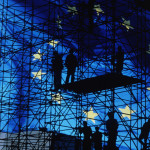The appeal of the European bishops and their president, formulated at the recent General Assembly of the COMECE ended on Friday, stems from the estimates according to which a very low turnout would be expected at the next European elections in late May. However, it should be understood more as a warning to the general public rather than to the youth, as Cardinal Marx has at the same time shown great understanding for the concerns and needs of young people in Europe. Non-existent hopes and future opportunities for young people, the cardinal said, are a socio-economic priority for the EU. The high rate of youth unemployment in many of the 28 member states, such as Greece, is a poison to the political climate. A breeding ground for anti-European populism, together with the alarming number of “new poor” that are constantly increasing, as pointed out by European bishops.
According to their analysis, the financial and debt crisis has severely impaired relations and solidarity between Member States. Massive austerity measures, the feeling of being dominated and exploited, the strong tensions, even when it comes to asylum-seekers and immigrants, are not healthy for the European peace project.
In this context, the COMECE refers to the classical heritage that the social doctrine of the Church introduced in Brussels and in Strasbourg thanks to the founding fathers of the European integration policy, such as Konrad Adenauer, Robert Schuman and Alcide de Gasperi: subsidiarity and solidarity. At the end of the day, this follows along the lines of what Pope Francis said about looking at the weak, the poor, and the disadvantaged. At the same time, according to the bishops, subsidiarity means safeguarding national profiles and the peculiarities of the EU. Under the auspices of a “growing desire for unity”, the long-standing traditions and peculiarities of Europe should not be “undermined”. Probably, this has been also reinforced thinking of religious freedom. According to Cardinal Marx, in fact, religious freedom implies that the state does not regulate religion nor the bond of marriage.
With its appeal, the COMECE, the Commission of the Bishops’ Conferences of the European Community, has recalled the importance of a good translation of the Social Doctrine of the Church – and Pope Francis’ messages about “marginalised people” – into the political agenda of the forthcoming elections. The citizens of Europe will now have the last word.
Der Appell der EU-Bischöfe und ihres Vorsitzenden, formuliert bei der jüngsten / am Freitag zu Ende gegangenen COMECE-Vollversammlung , stemmt sich gegen die erwartete sehr geringe Wahlbeteiligung bei den bevorstehenden Europawahlen Ende Mai. Doch sie ist mehr als Bürgerschelte denn als eine Jugendschelte zu verstehen. Denn gleichzeitig zeigte Marx großes Verständnis für die Sorgen und Nöte der Jugendlichen in Europa. Fehlende Hoffnungen und Zukunftschancen für die Jugend, so der Kardinal, seien die drängendste sozialpolitische Aufgabe für die EU. Hohe Jugendarbeitslosigkeit in vielen der 28 Mitgliedsländer, etwa in Griechenland, sei Gift für das politische Klima. Ein Nährboden für europafeindlichen Populismus, ebenso wie die gefährlich steigende Zahl der “neuen Armen”, wie die EU-Bischöfe warnen.
Ihre Analyse: Die Finanz- und Schuldenkrise hat den Beziehungen und der Solidarität zwischen den Mitgliedstaaten massiv geschadet. Massive Sparzwänge, das Gefühl, dominiert und übervorteilt zu werden, die herrschende Anspannung, auch mit Blick auf Themen wie die Lastenverteilung bei Asyl und Migration, kann dem Friedensprojekt Europa nicht zuträglich sein.
In dieser Lage verweist die COMECE auf den klassischen Erbteil, den die Katholische Soziallehre mit den Gründervätern der europäischen Integrationspolitik wie Konrad Adenauer, Robert Schuman oder Alcide de Gasperi in Brüssel und Straßburg eingebracht hat: Subsidiarität und Solidarität. Daraus spricht letztlich das, was Papst Franziskus das Schauen auf die Schwächeren, Armen, Behinderten nennt. Zugleich bedeutet Subsidiarität mit den Worten der Bischöfe auch die Wahrung nationaler Profile und Eigenheiten in der EU. Unter einem “wachsenden Drang zur Einheitlichkeit” dürften lange währende Traditionen und Eigenheiten “keinen Schaden nehmen”. Das ist wohl auch in Richtung der Religionsfreiheit gesprochen. Religionsfreiheit bedeute, so Marx, dass der Staat nicht Religion reguliere und etwa vorschreibe, was eine Ehe ist.
Die EU-Bischofskommission COMECE hat mit ihrem Aufruf eine gute Übersetzung der Katholischen Soziallehre – und der auf „die Menschen am Rand“ orientierten Botschaften von Papst Franziskus – in politische Wahlprüfsteine vorgelegt. Nun liegt der Ball im Feld der Bürger.
La parola ai cittadini
“Prendete queste elezioni sul serio, perché non tutti avranno la possibilità di beneficiarne!”. L’appello lanciato a Bruxelles dal cardinale Reinhard Marx ai giovani dell’Europa è apparso piuttosto chiaro. Coloro che non auspicano che i partiti populisti e antieuropei guadagnino terreno in ragione della crisi finanziaria e debitoria devono fare qualcosa al riguardo: con il proprio impegno politico, o quantomeno recandosi alle urne come espressione di un dovere civico. Gli eventi in Crimea, ha affermato il presidente della Comece, Commissione delle Conferenze episcopali della Comunità Europea, ci hanno dimostrato che le libertà di cui godiamo in un’Europa unita non sono affatto scontate. Si è poi posto la domanda “se non fossimo diventati troppo stanchi e pigri per preoccuparci delle questioni politiche dell’Europa”.
L’appello dei vescovi europei e del loro presidente, formulato in occasione della recente Assemblea Generale della Comece conclusasi venerdì, scaturisce dalle stime secondo cui si prevedrebbe una bassissima affluenza alle urne per le prossime elezioni europee di fine maggio. Tuttavia, esso va inteso più come un monito per i cittadini in generale che per i giovani, dato che il cardinale Marx ha al tempo stesso mostrato grande comprensione nei confronti delle preoccupazioni e delle esigenze dei giovani in Europa. Speranze inesistenti e opportunità future per i giovani, ha affermato il cardinale, costituiscono una priorità di natura socio-economica per l’Ue. L’alto tasso di disoccupazione giovanile in molti dei 28 Paesi membri, come la Grecia, rappresenta un veleno per il clima politico. Un terreno fertile per il populismo anti-europeo, unitamente all’allarmante numero di “nuovi poveri” in costante aumento, come sottolineato dai vescovi europei.
Secondo la loro analisi, la crisi finanziaria e debitoria ha leso fortemente le relazioni e i rapporti di solidarietà tra gli Stati membri. Massicce misure di austerità, la sensazione di essere dominati e sfruttati, le forti tensioni, anche per quel che attiene l’onere di asilo e immigrazione, non sono salutari per il progetto di pace europeo.
In questo contesto, la Comece fa riferimento all’eredità classica che la dottrina sociale della Chiesa ha introdotto a Bruxelles e a Strasburgo tramite i padri fondatori della politica d’integrazione europea, come Konrad Adenauer, Robert Schuman e Alcide de Gasperi: la sussidiarietà e la solidarietà. Si parla in ultima analisi di ciò che papa Francesco definisce lo sguardo sui deboli, sui poveri, sugli svantaggiati. Allo stesso tempo, secondo i vescovi, sussidiarietà significa salvaguardare i profili nazionali e le peculiarità dell’Ue. Sotto l’egida di un “crescente desiderio di unità”, le profonde tradizioni e peculiarità europee non devono uscirne “danneggiate”. Probabilmente, tutto ciò è stato altresì ribadito alla luce della libertà religiosa. Secondo il cardinale Marx, infatti, la libertà religiosa implica che lo Stato non disciplini la religione né il vincolo del matrimonio.
Con il suo appello, la Comece, Commissione delle Conferenze episcopali della Comunità Europea, richiama l’importanza di una buona traduzione della dottrina sociale della Chiesa – e dei messaggi di Papa Francesco riguardanti “le persone ai margini” – nei programmi politici in vista delle elezioni. Ora l’ultima parola spetta ai cittadini.
Alexander Bruggemann
Latest posts by Alexander Bruggemann (see all)
- Voice to the citizens - 25 marzo 2014

